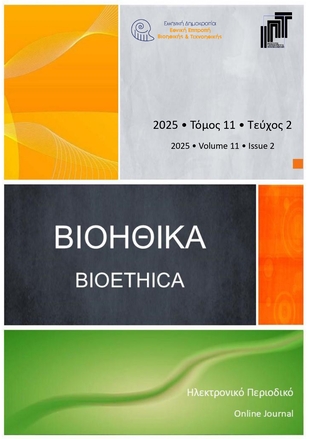Σχετικά με την αύξηση του κόστους της κτηνιατρικής περίθαλψης και τις νομικές και ηθικές επιπτώσεις για την ευημερία των κατοικίδιων ζώων

Περίληψη
Η απότομη αύξηση του κόστους των κτηνιατρικών υπηρεσιών σε όλη την Ευρώπη τα τελευταία χρόνια έχει δημιουργήσει σημαντικές ηθικές και νομικές προκλήσεις όσον αφορά την ευημερία των κατοικίδιων ζώων. Δεδομένου ότι τα ζώα αναγνωρίζονται ως αισθανόμενα όντα τόσο από νομική όσο και από ηθική άποψη, η αδυναμία πολλών ιδιοκτητών κατοικίδιων ζώων να έχουν πρόσβαση στις απαραίτητες κτηνιατρικές υπηρεσίες δημιουργεί ανησυχίες σχετικά με τις ευρύτερες συνέπειες για την ευζωία των ζώων.
Ενώ ο πληθωρισμός και η τεχνολογική καινοτομία συμβάλλουν στην αύξηση του κόστους, πολλές χώρες αναγνωρίζουν ως κύρια αιτία την επιθετική ενοποίηση της αγοράς από λίγους εταιρικούς παράγοντες. Αυτοί οι κυρίαρχοι παράγοντες μειώνουν τον ανταγωνισμό και περιορίζουν τη διαφάνεια των τιμών, δημιουργώντας συνθήκες που θέτουν σε κίνδυνο την ευημερία των ζώων, καθώς αποθαρρύνουν την έγκαιρη και οικονομικά προσιτή πρόσβαση στη φροντίδα, ενώ ταυτόχρονα υπονομεύουν την ικανότητα των κτηνιάτρων να λειτουργούν ανεξάρτητα και ηθικά.
Ως απάντηση, έχουν εισαχθεί διάφορες νομοθετικές πρωτοβουλίες. Η Γερμανία εφαρμόζει ένα τιμολόγιο για τη ρύθμιση Η Ελλάδα έχει δημιουργήσει δημοτικές κτηνιατρικές υπηρεσίες για μειονεκτούσες ομάδες. Το Ηνωμένο Βασίλειο διερευνά αντιανταγωνιστικές πρακτικές στον τομέα. Οι Ηνωμένες Πολιτείες της Αμερικής έχουν προτείνει φορολογικές εκπτώσεις για κτηνιατρικά έξοδα. Αυτά τα παραδείγματα αντικατοπτρίζουν διαφορετικές προσεγγίσεις στην κατανομή των ευθυνών μεταξύ του κράτους, του επαγγέλματος και των ιδιοκτητών κατοικίδιων ζώων.
Για να εξασφαλιστεί η μακροπρόθεσμη πρόσβαση σε κτηνιατρική περίθαλψη και να τηρηθούν οι υποχρεώσεις για την ευημερία των ζώων, η έκθεση συνιστά μια πολυδιάστατη ρυθμιστική στρατηγική. Αυτή περιλαμβάνει διαφανή τιμολόγηση, αναλογική ρύθμιση των τελών, στοχευμένες δημόσιες υπηρεσίες και διασφαλίσεις κατά της υπερβολικής συγκέντρωσης της αγοράς. Αντί να βασιζόμαστε σε έναν μόνο παράγοντα, απαιτείται ένα μοντέλο κοινής ευθύνης για να διασφαλιστεί ότι τα οικονομικά εμπόδια δεν υπονομεύουν τις νομικές και ηθικές δεσμεύσεις για την προστασία της ευημερίας των ζώων.
Λεπτομέρειες άρθρου
- Πώς να δημιουργήσετε Αναφορές
-
Cvetkovic, A. (2025). Σχετικά με την αύξηση του κόστους της κτηνιατρικής περίθαλψης και τις νομικές και ηθικές επιπτώσεις για την ευημερία των κατοικίδιων ζώων. Βιοηθικά, 11(2), 27–39. https://doi.org/10.12681/bioeth.42842
- Ενότητα
- Πρωτότυπες Εργασίες

Αυτή η εργασία είναι αδειοδοτημένη υπό το CC Αναφορά Δημιουργού 4.0.
Οι Συγγραφείς που δημοσιεύουν εργασίες τους σε αυτό το περιοδικό συμφωνούν στους παρακάτω όρους:
- Οι Συγγραφείς διατηρούν τα Πνευματικά Δικαιώματα και χορηγούν στο περιοδικό το δικαίωμα της πρώτης δημοσίευσης, ενώ ταυτόχρονα τα πνευματικά δικαιώματα της εργασίας προστατεύονται σύμφωνα με την Creative Commons Attribution CC BY 4.0, που επιτρέπει άμεση πρόσβαση στις εργασίες και κάθε χρήστη να διαβάζει, να κάνει λήψη, να αντιγράφει, να διανέμει, να εκτυπώνει, να αναζητά, ή να συνδέει με το πλήρες περιεχόμενο των άρθρων, να τα αναζητά για ευρετηρίαση, να τα χρησιμοποιεί ως δεδομένα σε λογισμικό, ή να τα χρησιμοποιεί για οποιοδήποτε άλλο νόμιμο σκοπό. Προϋπόθεση ε΄ιναι η αναφορά στον αρχικό δημιουργό/ούς και την αρχική δημοσίευση σε αυτό το περιοδικό.
- Οι Συγγραφείς μπορούν να συνάπτουν ξεχωριστές, και πρόσθετες συμβάσεις και συμφωνίες για την μη αποκλειστική διανομή της εργασίας όπως δημοσιεύτηκε στο περιοδικό αυτό (π.χ. κατάθεση σε ένα ακαδημαϊκό καταθετήριο ή δημοσίευση σε ένα βιβλίο), με την προϋπόθεση της αναγνώρισης και την αναφοράς της πρώτης δημοσίευσης σε αυτό το περιοδικό.
Το περιοδικό Βιοηθικά επιτρέπει και ενθαρρύνει τους συγγραφείς να καταθέτουν τα δημοσιευμένα άρθρα σε θεσμικά (π.χ. το αποθετήριο του Εθνικού Κέντρου Τεκμηρίωσης) ή θεματικά αποθετήρια (π.χ. αποθετήριο SSOAR για τις Κοινωνικές Επιστήμες), μετά τη δημοσίευσή τους στο περιοδικό «Βιοηθικά» και με όρους Ανοικτής Πρόσβασης, όπως κατά περίπτωση προσδιορίζονται από τους χρηματοδότες της έρευνάς τους ή/και τα ιδρύματα με τα οποία συνεργάζονται.
Κατά την κατάθεση της εργασίας τους, οι συγγραφείς πρέπει να παρέχουν πληροφορίες σχετικά με τη δημοσίευση του άρθρου στο περιοδικό «Βιοηθικά» και τις πηγές χρηματοδότησης της έρευνάς τους.
Κατάλογοι των ιδρυματικών και θεματικών αποθετηρίων ανά χώρα υπάρχουν στη βάση http://opendoar.org/countrylist.php . Οι συγγραφείς έχουν τη δυνατότητα να καταθέσουν χωρίς κόστος την εργασία τους στο αποθετήριο www.zenodo.org, το οποίο υποστηρίζεται από το OpenAIRE (www.openaire.eu ), στο πλαίσιο των πολιτικών της Ευρωπαϊκής Επιτροπής για την ενίσχυση της Ανοικτής ακαδημαϊκής έρευνας.


